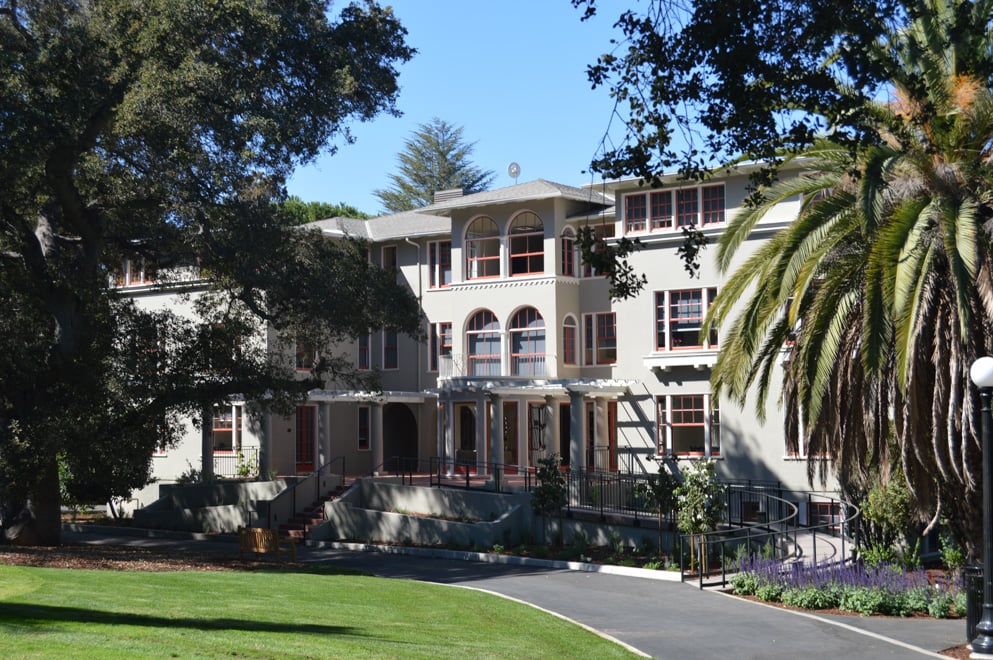Stanford announced the members of the external committee that will review the University’s sexual harassment and sexual violence policies and provide recommendations next month. The reviewers are members of administrative and Title IX offices at other universities, which students and faculty have contended could result in a biased review.
The committee will be composed of four administrators from peer institutions: Regan Crotty, director of gender equity and Title IX administration at Princeton; Eric Estes, vice president for campus life at Brown; Kimberly Hewitt, vice president for institutional equity and chief diversity officer at Duke; and Stephanie Spangler, vice provost for health affairs and academic integrity and Title IX coordinator at Yale.
“What [Stanford] is doing with Title IX is the equivalent of the Archdiocese of Philadelphia having an ‘outside review’ done by the Archdioceses of Boston and Los Angeles and calling it independent,” Stanford Law professor and activist Michele Dauber wrote on Twitter. “The results are undermined prior to the investigation.”
Miranda wrote in a statement to The Daily that the University believed reviewers from other schools could provide useful insights.
“Stanford has used external reviews made up of experts from other schools to assess other offices at Stanford,” Miranda wrote. “We believe we can learn a great deal from those at other institutions.”
Dauber wrote in a statement to The Daily that Stanford’s decision to enlist other university administrators was not the norm for external reviews.
“What Stanford is about to do is not the norm for such evaluations,” Dauber wrote. “These individuals are not tenured faculty or researchers in the field for the most part but are staff who cannot really be expected to speak critically of practices at a school that operates much like their home institutions.”
Ana María Tárano ’13 M.S. ’15, fifth-year aeronautics and astronautics Ph.D. candidate and member of the Stanford Anti-Harassment and Support Squad, echoed similar concerns in a statement to The Daily.
“An external review composed from members of universities facing similar issues, providing similar resources, and motivated by similar incentives does not inspire the change we need,” wrote Tárano, who is also the former co-chair of the Graduate Student Council’s Diversity and Advocacy Committee.
Dauber specifically criticized each reviewer’s school for what she described as the mishandling cases of sexual abuse, pointing to a controversial Princeton statement on campus sexual misconduct, a lawsuit against Brown for violating Title IX policies in a fraternity sexual assault trial, a Duke case where a hospital billed a student rape victim and a Yale professor who assaulted students over decades.
Crotty, Estes, Hewitt and Spangler did not respond to requests for comment.
Stanford spokesperson E.J. Miranda declined to address specific critiques of the reviewers, referring The Daily to a Stanford News article that announced the members of the committee.
Katerina Gonzales, fifth-year earth systems Ph.D. candidate and Stanford Anti-Harassment and Support Squad member, criticized the Stanford News article for portraying the University’s sexual violence efforts in a positive light.
“It is insulting for Stanford to brand this as a positive change that the institution is making,” Gonzales wrote in a statement to The Daily. “The news article is rife with virtue signaling. This act is gaslighting the community and trying to shut down real change.”
The Stanford News article outlined other efforts by the University to address sexual violence, including providing sexual assault examinations at Stanford Hospital and expanding the YWCA-Silicon Valley’s on-campus services in the spring.
Independent review?
On Twitter, Dauber wrote that the University should have instead hired third parties like law firms and the non-profit National Women’s Law Center to conduct the review, citing Baylor University’s decision to hire attorneys Gina Smith and Leslie Gomez to conduct an external review following the sexual assault of a student by another student.
Gonzales wrote that the University’s choice of reviewers indicated a lack of serious concern about sexual violence on campus.
“The fact that they haven’t pursued [selecting reviewers not affiliated with peer universities] tells us that they don’t want that independent review,” Gonzales wrote. “This speaks volumes about the justness of the Title IX and related processes at Stanford.”
Miranda did not comment on criticism that the University did not select third-parties like non-profits or law firms to conduct the review.
Dauber wrote to The Daily that she did not expect the review would be productive.
“Stanford has for decades adopted a stance on this issue that has worked well for it of stalling, delaying, and failing to take necessary action,” Dauber wrote. “I view this review as merely more of the same.”
Miranda did not comment on criticism that the University was purposely delaying taking action.
Tárano wrote that she would still encourage Stanford community members to participate in the open forums that will be held and provide feedback through the online feedback form.
“My colleagues and I are burnt out from this work so I hope this isn’t a delay tactic to maintain us in the cycle of providing feedback, waiting for the data to be analyzed and waiting years for tangible actions to create change,” Tárano wrote.
